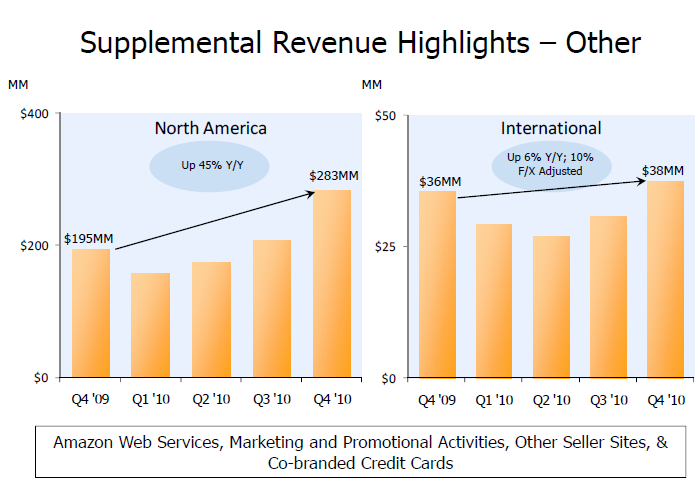Amazon Web Services turns 5: The impact as SaaS, startup enabler

Amazon Web Services had its 5th birthday on March 14 and the unit's biggest impact so far has been an enabler to software as a services companies and startups.
AWS started out as a simple storage repository and has expanded into a bevy of enterprise friendly areas ranging from virtual private clouds to implementation templates to relational databases to computing instances.
In five years, here's what we've learned about AWS:
- Amazon is increasingly seen as an enterprise option for large companies.
- Partnerships with corporate tech players ranging from BMC to IBM to Oracle to Red Hat have paid off.
- The unit has been rapidly adding features to better court customers.
- AWS is a primary infrastructure as a service player and has commoditized computing instances in North America.
- And AWS remains largely a financial mystery. AWS falls into the "other" revenue category. Here's a look at the quarterly revenue.
But AWS' largest most enduring impact may be as an enabler for a wide range of small companies and on-demand computing players. It's common knowledge to startups and SaaS outfits that you just don't build out your own infrastructure initially. You get AWS. You pay by the sip. And you experiment.
Big companies are doing the same. Simply put, AWS has become the infrastructure portion of the stack. The real eye opener for this equation came a year ago when I found out that SAP's Business ByDesign runs on AWS. We also learned that Netflix runs on AWS too.
If it AWS is good enough for those giants it is no surprise that a lot startups are using Amazon's data centers.
In other words, AWS has enabled a bevy of companies to start up with little upfront capital. That's a computing shift and could be AWS' enduring legacy.
Related: 10 things: Using Amazon Web Services in the enterprise
